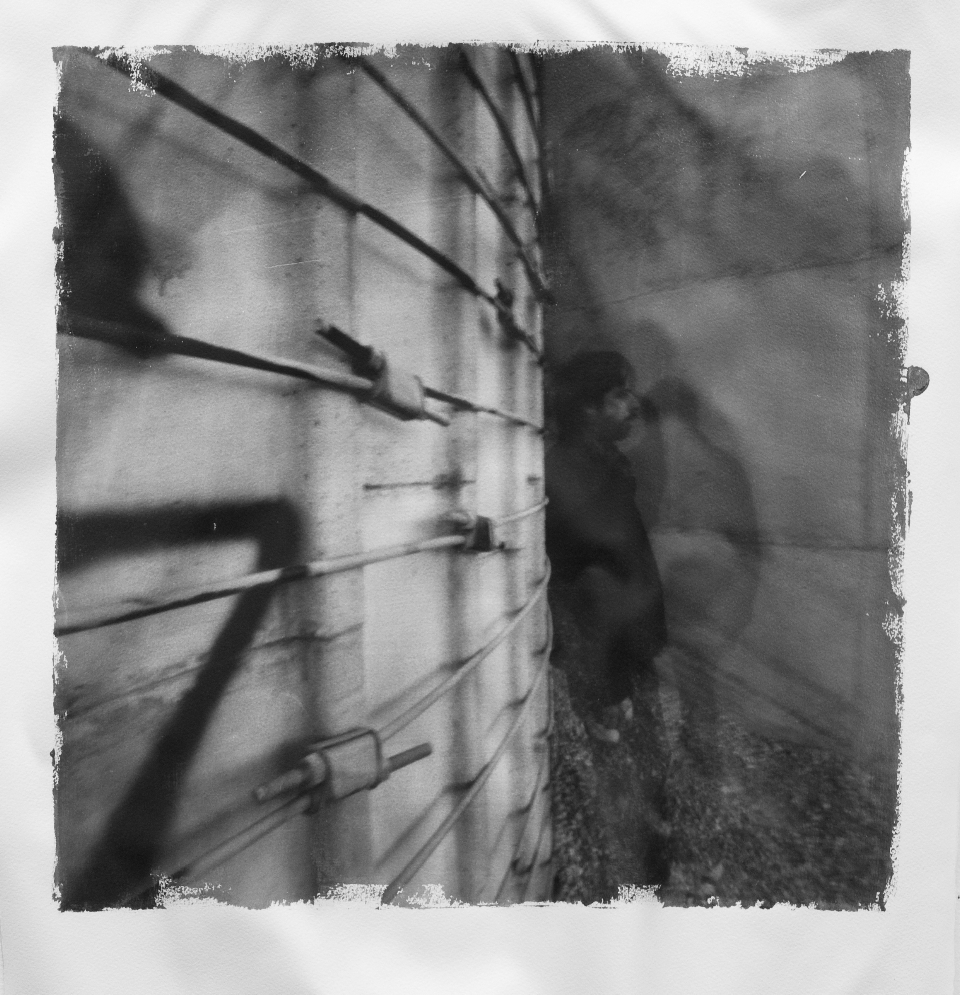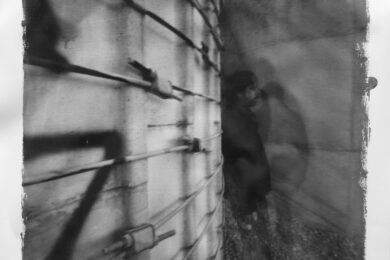Dave Heumann is the hirsute gent and singer/songwriter who fronts Arbouretum, along with Corey Allender on bass, Daniel Franz on drums and Steve Strohmeier on guitar. At the beginning of this year they released a stunning third album Song Of The Pearl which is as rich in tunes as it is in successful cross-pollination of styles such as the classic English folk of Martin Carthy, the indie pop of the Vaselines, the country grunge of Howlin’ Rain, the dreamy croon of Fred Neil and the campfire folk of Pontiak.
Arbouretum, to put it simply, leave bands like Bon Iver and Fleet Foxes dead in the water. Or at least in our eyes. Despite the fact that Arbouretum’s name means a tree garden or park, it is they who are redolent of nature crimson in incisor and talon, soil under the finger nails, a chance wrong turning, a night sheltering, a freezing draught of stream water the next morning. It is soft lad who lives in a shed that reeks of a deodorized and re-perfumed, tourist board ideal of the great outdoors. Also for a musician working in such a field, Heumann is refreshingly unprecious throwing in unexpected reference points and styles that keep his muse sounding fresh, rather than some finger in ear museum piece.
Song Of The Pearl is already one of our favourite albums of the year and hopefully it will reach a wider audience now that the band are coming over to tour it.
Hello Arbouretum. How are you? Where are you? And what is the weather like?
Dave Heumann: “I’m in Baltimore right now, where I live. It’s night-time and raining; a gentle spring rain that feels kind of nice when it lands on you.”
Can you explain your name please? It’s something to do with trees isn’t it?
DH: “An Arbouretum is a tree park. We have one here in Baltimore; it’s one of the city’s prettiest and most under-utilized resources. There are plaques on many of the trees that tell what they are called, with both scientific and common names. In some cases, there are little signs with facts on them beneath the trees. One of my favorite of these is a sign beneath a magnolia that explains that the reason their flowers are so tough is because magnolias actually predate bees, and were originally pollinated by beetles. This I find strangely fascinating.”
On your MySpace it says other/grunge/folk rock. Isn’t grunge a bit misleading? I mean, you don’t sound like Alice In Chains, do you?
DH: “I think there is perhaps a bit of a ‘grunge feeling’ at times that doesn’t really have anything to do with the sound of those kinds of bands, but is maybe more related to an all-pervasive sense of melancholia. It’s nothing to get depressed about; it’s just something that is, and you deal with it. When I first visited Seattle, it was probably 2006 or 2007, over a decade after the grunge scene had come and gone. Yet the feeling that the city gave rise to made me understand the source of that music implicitly. Perhaps there is a similarity with our music and the feeling one gets from Baltimore.”
Do we detect the very bucolic influence of English folk? Martin Carthy or chaps like that?
DH: “Oh yes. There’s something about those kinds of melodies that I’ve been able to absorb by osmosis or somehow. I don’t even know where it comes from, really- it’s not like I sit around listening to English folk all the time. Interesting things happen, though. When I came up with the melody for ‘Down By The Fall Line’, for example, I was killing time at a cafe in Coventry and there happened to be a guitar around. It was all there at once – I seemed to have plucked it out of the atmosphere. I didn’t start working on the lyrics until long after I had gotten back to Baltimore, and it then turned into this American settler narrative…”
Fred Neil kicks ass. He was the beatnik Frank Sinatra. Discuss.
DH: “He was a sensitive guy who re-interpreted old folk songs about being poor, and he swam with dolphins. Such a warm-hearted and generous spirit comes across in his music. The only thing that made him at all similar to Sinatra is the crooning.”
With all this talk of trees and facial hair, aren’t you worried that people will think you’re hippies?
DH: “You’ve just reminded me that I need to get a haircut. Summer’s coming on and I just have way too much of this stuff. I keep having to move it out of my face, and it just becomes a conduit for salty sweat getting in my eyes onstage. The girl who used to cut my hair so expertly out of her house for the past three years has moved to Portland, so now I’m reduced to having to make appointments at salons with people who may or may not give good haircuts, for like forty bucks. Not good!”
You’ve recorded an album with Pontiak recently which I also like. But tell the truth, when you know no one is looking, do you all get covered in glitter and get down to a bit of Giorgio Moroder?
DH: “I really don’t. I’m so bad with anything image-related. I almost wish I weren’t, we’d probably get a lot more attention. I’m just incapable of faking anything.”
Serious question though: do you find it difficult to make a distinctive mark in a genre (which I guess could be called country rock) which is fairly long in the tooth? Do you get nagging voices in your head, persuading you to go for a more ‘contemporary’ sound? (Not that we think you should of course – that kind of thinking led to Nu Metal.)
DH: “First of all, I really don’t feel that Arbouretum music exists as part of any kind of genre that’s out there. I think what we’re doing is using ideas found within certain genres and combining them in ways that are fairly unique. That being said, I have at times thought that the music that some of our peers are making is more cutting-edge somehow, owing to different kinds of structural ideas, instrumentation, and so forth. And this is the point when I must ask myself: ‘Do these kinds of ideas really serve the music, or are they artificial constructions imposed upon the music?’ That’s an important distinction, because I think a lot of music being currently made is overly thought-out; it represents the triumph of intellect over the feeling-sense, and as a result one is left with something that seems convoluted and ultimately incapable of forging a direct emotional connection with the source of inspiration itself. There are a lot of bands these days that have avoided such pitfalls, however: Earth, Hush Arbors, Pontiak, and Comets on Fire, to name just a few. All of these are artists that strike me as creating music that makes sense, that is smartly written and interesting without falling into the trap of sounding ‘too clever’ or contrived.”
It sounds like your music would go very well with drinking beer and smoking grass. I do neither, what should I do to prepare myself to listen to your music?
DH: “You could maybe try rolling down a hill. I haven’t done it since I was really young, but it was great! Just find a nice long grassy one and roll, roll, roll.”
What are your plans for the rest of the year?
DH: “We have a bunch of US shows in June with the Band of Horses, some touring in the UK and Europe for July, then after that things get a little nebulous. I imagine we’ll be writing some new music and maybe recording. Then in October we have this Rockpalast thing in Germany we just confirmed, which is kind of huge from our perspective.”
Congratulations on Song Of The Pearl. It’s a truly awesome album.
DH: “Thank you so much.”
For more details on the UK dates visit Arbouretum’s MySpace. Song Of The Pearl is out on Thrill Jockey now.



